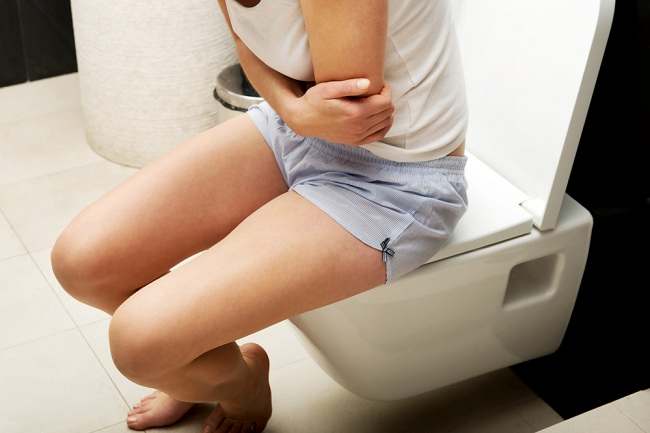There are at least 6 causes of defecation
The cause of defecation is often difficult to know for certain. However, in general there are several factors that can cause constipation or difficulty defecating, including poor diet, pregnancy, delaying bowel movements, influence of drugs, or due to certain health conditions.
Constipation or constipation, in medical language called constipation, occurs when the frequency of defecation is reduced. Actually the frequency of defecation can vary from person to person. There is no standard rule for how many times normal bowel movements a day or a week.

However, it is usually not defecate for more than three days or the frequency of defecation is less than three times a week can be said to be difficult to defecate. This is because after three days, the stool structure becomes harder and harder to remove.
Various Defecating Causes
Then what are the general conditions be the cause of defecation?
- Lifestyle influences
The diet Unhealthy, such as lack of fiber and lack of fluids, can lead to constipation. In addition, changes in diet and overeating of dairy products can also cause constipation. In addition, eating disorders also contribute to constipation. Lazy exercise or less active moves can also invite constipation.
- Pregnancy
Around 40 percent of pregnant women experience constipation during pregnancy, especially in the early period of pregnancy. Constipation can be experienced by pregnant women because during pregnancy, the body produces more progesterone, which can relax the muscles, which makes it difficult for the intestinal muscles to contract. As a result, pregnant women have difficulty defecating.
- Postpone b money a ir b big
Often kids children and adults have a reluctance to go to the toilet to defecate when they begin to feel like defecating, for reasons of fear, shame, lack of privacy to use the toilet, or various other reasons. However, delaying defecation when there is an urge to do so, it actually risks causing constipation. In other words, hurry up in responding to this call of nature.
- Influence o drugs
Consumption of certain drugs can also cause side effects such as constipation. These drugs can include calcium supplements, iron supplements, antiepileptic drugs, antidepressants, antipsychotics, diuretic drugs, as well as narcotic pain relief drugs, such as codeine and morphine. In addition, drugs to treat digestive disorders, such as antacids and antidiarrheals, as well as the habit of using laxative drugs, can also cause constipation.
- Have k on k health t certain
In rare cases, difficulty in defecating can be considered a sign of certain medical conditions, such as diabetes, irritable bowel syndrome, hypercalcaemia or excess calcium in the blood, a less active thyroid gland anal fissure, inflammatory bowel disease, colon or rectal cancer, to neurological disorders such as multiple sclerosis , stroke, Parkinson's disease, or spinal cord injury.
- Factors p cyclical
Defecation difficulties can happen to those who have psychological problems, such as stress, anxiety, depression, violent trauma, or sexual abuse.
How to Handle Defecation
Causes of defecation can vary by person. So even regarding the handling steps will depend on the cause and how severe your condition is. However, in general constipation can be dealt with by changing lifestyles, such as the following:
- Suffice enough water to prevent dehydration and soften the texture of the stool.
- Increase consumption of fiber, at least 18 -30 grams per day. Fiber can be obtained from fruits, vegetables, or cereals and nuts.
- When you defecate in the toilet seat, place your feet on a low stool so that your knees position your waist higher. This position makes dirt easier to come out.
- Increase physical activity and as simple as walking for at least 15 minutes is enough, provided that it is done routinely.
- Apply a routine to defecate to the toilet, for example when and in the toilet where you are comfortable to defecate. Application of this routine also needs to be done for your child. Help your child get used to this activity and give praise or appreciation if the child has done it.
- Don't delay defecating when you feel the need and urge to do it.
- When constipation occurs children, give fruits and probiotics to facilitate defecation, such as strawberries, apples, grapes, pears, or raisins. Fruits and probiotics can also be given to adults.
If changing your lifestyle has not been successful, your doctor may prescribe laxative or laxative medicines for you. For pregnant women who experience constipation, consult your obstetrician before taking any medication.